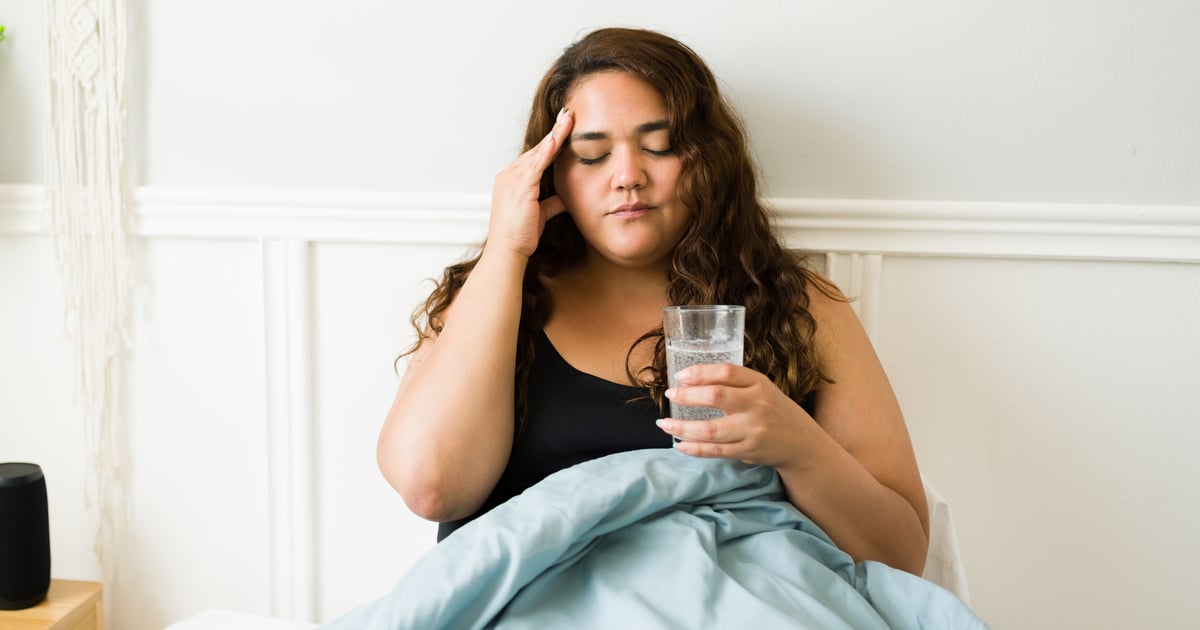
It’s no secret that over-the-counter pain relievers come with their own set of warnings, like not to take ibuprofen on an empty stomach or the side effects associated with Excedrin Migraine vs. Excedrin Extra Strength. But have you ever reached for an Advil after a night of heavy drinking? Well, that comes with its own warning, too.
If you take ibuprofen drugs (like Advil), which fall into the category of anti-inflammatory drugs (or NSAIDs), when drinking, it “may increase the risk of certain adverse effects,” says Poonam Desai, DO, an NYC-based ER doctor and TedX speaker. These effects range from increased risk of gastrointestinal bleeding to stomach ulcers. And in extreme cases, if left unaddressed, these side effects can also lead to fatality.
So before you reach for the ibuprofen after a night of heavy drinking, here’s what to know about ibuprofen and alcohol.
Can I Take Ibuprofen After Drinking?
As a general principle, Dr. Desai does not recommend mixing alcohol and ibuprofen or taking Advil immediately after drinking.
That being said, for most people — like the occasional social drinker — “having a small amount of alcohol (a single drink) with one dose of ibuprofen isn’t likely to be harmful,” Dr. Desai explains.
The risk of experiencing adverse effects from consuming both ibuprofen and alcohol within a short time span is heightened when you take ibuprofen regularly or drink heavily and regularly. “It is also of concern in people who have preexisting conditions such as gastritis, stomach ulcers, liver disease, and/or kidney disease,” Dr. Desai adds.
Will Ibuprofen and Alcohol Kill You?
It’s not likely, at least not when you’re drinking in moderation. But the “risk of adverse effects is determined by many things, from age to other medical conditions and lifestyle factors,” Dr. Desai says.
When you’ve consumed alcohol in larger quantities and then take ibuprofen, “adverse effects include liver damage, gastritis, increased risk of bleeding, damage to the kidneys, and stomach ulcers,” Dr. Desai says — many of which, if not addressed, can worsen and cause serious health complications and, in some instances, death. “Both alcohol and ibuprofen irritate the stomach lining, and when taken together, they may exacerbate the irritation, leading to gastric ulcers, gastric bleeding, and gastritis,” Dr. Desai explains. Plus, both ibuprofen and alcohol are metabolized by the liver, so routinely taking them together can lead to liver strain and possible liver damage. Both also have blood-thinning effects, increasing the risk of bleeding.
That being said, it’s important to reiterate that these warnings are for mixing ibuprofen and alcohol after drinking in excess. But Dr. Desai cautions against it altogether. “If you have any concerning symptoms after combining the two, it is important to see your doctor,” Dr. Desai says. You want to seek emergency medical care if you are experiencing chest pain, shortness of breath, rectal bleeding, dizziness, vomiting blood, slurring of speech, or weakness on one side, she explains.
Also important to note: similar warnings exist when it comes to taking other OTC pain medications, including acetaminophen (aka Tylenol), after drinking, as Tylenol with alcohol can increase liver damage, Dr. Desai says.
How Long After Drinking Can I Take Ibuprofen?
“After drinking alcohol, it is advised to wait 24 hours before taking ibuprofen, as it can take 24 hours for alcohol to clear the system,” Dr. Desai says. And if you are working the other way around and want to know how long after taking Advil you can drink, Dr. Desai says to wait at least 10 hours before drinking alcohol if you’ve been taking regular or high doses of ibuprofen.
There are also plenty of other strategies to employ when it comes to avoiding or getting rid of a hangover, like hydrating and eating food. And if your hangover feels like a real emergency or you’re experiencing any of the symptoms Dr. Desai mentioned, seek medical attention.

